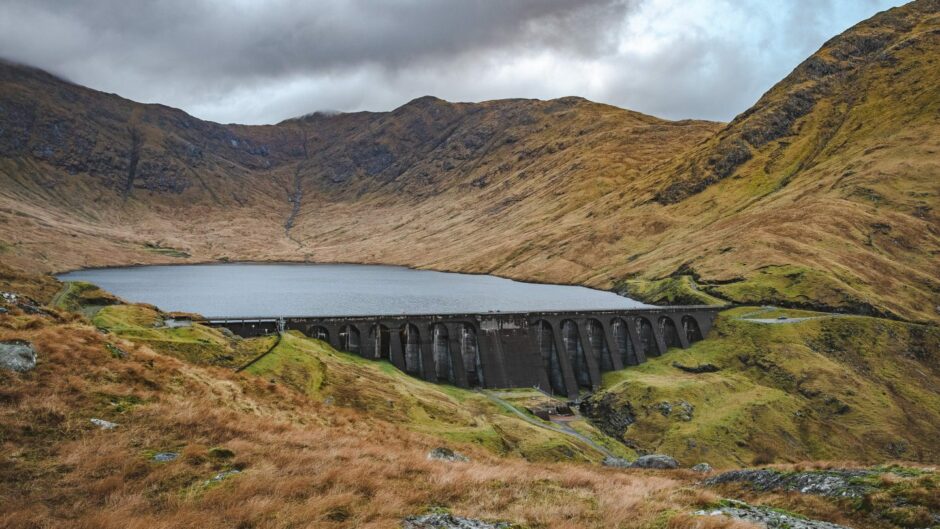
While support for new North Sea oil and gas has been welcomed, the energy sector has called for a drop in windfall taxes and greater incentives for low-carbon investment ahead of the Chancellor’s impending budget.
Energy sector representatives made clear a series of asks spanning windfall taxes, CfDs and transition investment incentives ahead of the Autumn Statement due to be presented by Chancellor Jeremy Hunt on Wednesday.
March’s Spring Budget was deemed “underwhelming” by northeast business leaders, though it has since been followed by a string of more positive announcements for energy firms – not least new exploration licences, annual licensing, a £20 billion funding package for carbon capture and storage (CCS) and the agreement of a windfall tax price floor.
Nevertheless, oil and gas representatives say the Energy Profits Levy (EPL) continues to weigh heavily on the industry. With capital already departing, they suggest the basin is seen by many as ‘uninvestible’.
North Sea producers are currently taxed at 75% of profits, including the 35% levy, which was introduced last year amid surging prices.
Ryan Crighton, Policy Director at the Aberdeen and Grampian Chamber of Commerce, said: “We welcome the UK Government’s commitment to continued oil and gas production in the North Sea to enhance our domestic energy security.
“However, there is compelling evidence that the EPL is having a detrimental impact on investment in the UK Continental Shelf and thus undermining the government’s policy goals.”
The group’s recent Energy Transition Survey suggests as much, finding that confidence in the UK sector is at “a record low,” Mr Crighton noted, and “clearly deviating from other basins.”
“There is clear evidence from those in the energy sector that discretionary capital is moving elsewhere due to the severity and duration of the tax. The experience of operators also suggests that under traditional reserve-based lending mechanisms, the UKCS has become ‘uninvestible’ for many.”
Indeed the tax is being blamed for further rounds of Aberdeen job cuts, while some firms have sought to invest in Norway or further afield amid what they see as a diminished opportunity pool.
Inflation-linked price floor
A tax floor for the EPL was introduced in June, though for headline rates to drop both average oil and gas prices need fall to, or below, $71.40 per barrel for oil and £0.54 per therm for gas, for two consecutive quarters – a level many expect would not be realised.
Mr Crighton noted that the 20-year average used to set the current floor is not inflation adjusted. If it was, the corresponding average would be $94 per barrel.
“If the EPL is to remain until 2028, as per current government policy, then two policy changes are recommended. First, the investment allowance attached to the EPL must be retained and widened to include low carbon related activities that will help accelerate the energy transition.
“Second, the trigger price for the levy to fall away needs to be adjusted for inflation.”
The requests came as Labour leader Keir Starmer visited Aberdeen last week, during which he set out a £2.5bn plan to drive investment and jobs into the region
Calls for ‘irresistible’ environment
In a comprehensive letter sent to the Chancellor in October, trade body Offshore Energies UK (OEUK) urged government to create an “irresistible investment environment” through fiscal and regulatory reform for all forms of energy investment and infrastructure.
The organisation has previously pointed to a potential £200 billion in energy investment that could be made by the end of the decade – £100 billion of which is currently awaiting on final investment decisions – but that businesses need “renewed certainty” to progress.
OEUK called for “a rational cross-party debate” on the future of the ring-fence tax burden, a reduction in headline taxes to an “appropriate rate” and the creation of embedded allowances that enable returns for industry and Treasury to encourage investment.
The UK government is already undertaking a wider of review of its oil and gas fiscal regime.
Echoing proposals from an AGCC survey released last week, it also acknowledged the need for a statutory body with powers and resource to reduce the time taken to approve both oil and gas and offshore energy projects if we are to avoid further flight of capital, people, and supply chain.
Other asks included reforms to the Contracts for Difference (CfD) scheme to encourage supply chain investment, tailored contracts to support applications from INTOG developments and timely grid connections.
Investment mechanisms to support decarbonisation and low carbon technologies, in the form of allowances or credits, should also be made “a permanent feature of the tax regime.”
On CCS, the group also called for the delivery of the Track-1 and Track 2 clusters “at pace” and sought further clarity around the disbursement of the £20 billion support outlined earlier in the year.
‘Rethink’ of low-carbon incentives
Clean energy trade body Scottish Renewables also wrote to the Chancellor in the lead up to the statement, calling for an urgent strategy to address investor confidence and attractiveness in the renewables sector.
Chief executive Claire Mack warned that: “The USA’s Inflation Reduction Act and the EU’s REPowerEU plan both have measures which are pulling critical private investments for the clean energy transition away from the UK.”
Last week’s announcement that strike prices for wind would rise by some 66% in the next capacity auction will instill greater confidence, though the organisation also pressed the need to move to more “sustainable pricing” via CfD reform.
Windfall taxes on the electricity sector also need a “rethink”, the group said, as corresponding investment incentives remain “severely undeveloped” compared to oil and gas.
Treasury should therefore consider new incentives and exempt new projects from the electricity generators levy (EGL) and introducing a sunset clause on the windfall tax.
That was mirrored in trade body Energy UK, which has sought to improve investor confidence in low-carbon energy market by amending tax and regulatory structures. It also emphasised the need for government and industry to support the most vulnerable during periods of “extraordinary energy prices.”
It urged for “meaningful and targeted” support for those people, and also for commitments to longer-term reform of the retail market, including exploring ideas such as a form of social tariff.
Also in ScottishRenewables’ wishlist is a commitment to increased investment in port infrastructure – vital to the UK’s fixed and floating wind ambitions – and the delivery of a ‘cap and floor’ mechanism for pumped storage hydro projects.
The latter would enable development of six major projects to progress and create nearly 15,000 jobs by 2035, it said.
Recommended for you

 © Supplied by AGCC/ Michal Wachuci
© Supplied by AGCC/ Michal Wachuci © Supplied by Drax
© Supplied by Drax